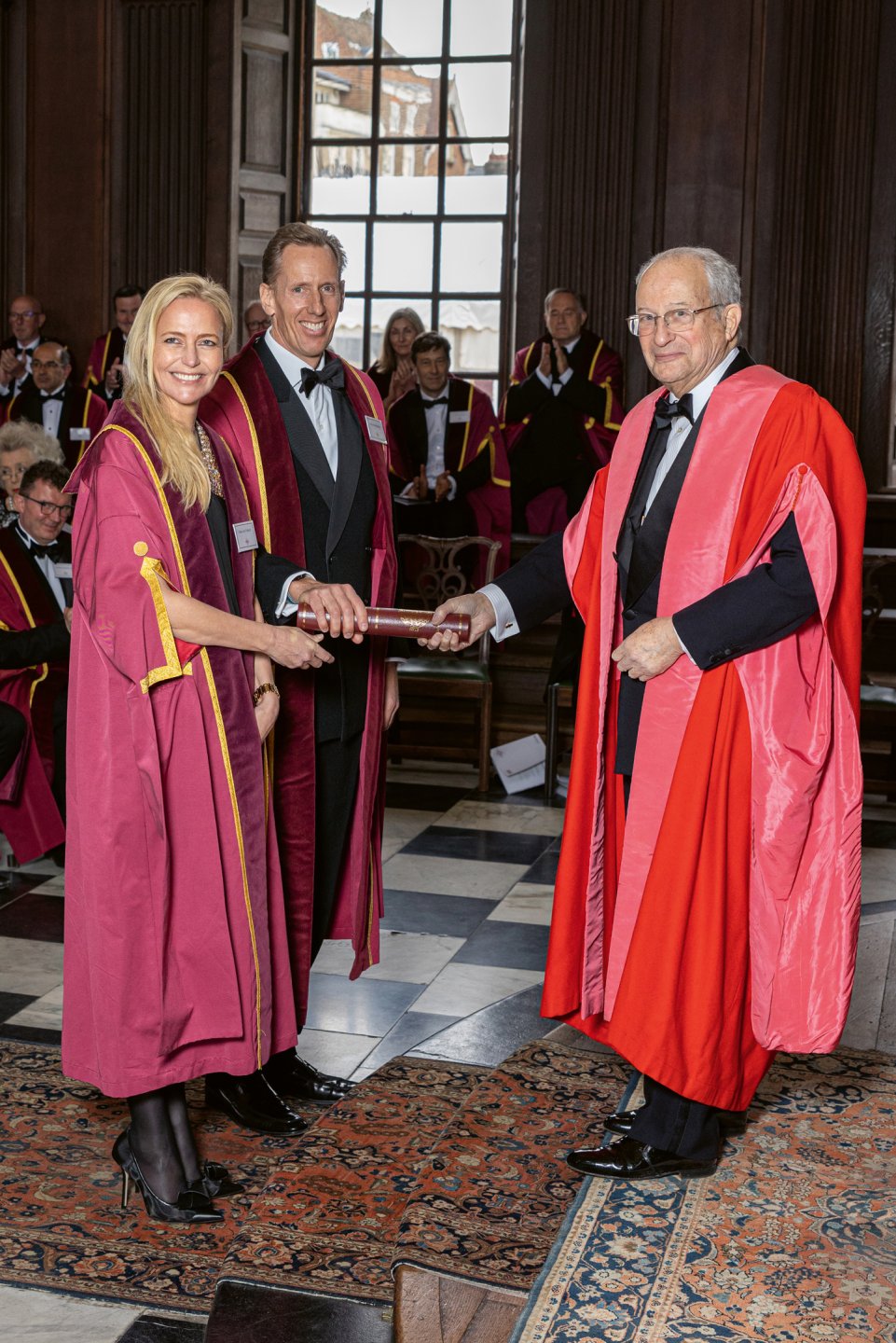What does it take to be an outstanding Chancellor?
As the University says goodbye to Lord Sainsbury of Turville, we celebrate the man behind the gown.
Champion, advocate and an essential part of the University’s governance. As the constitutional head, the Chancellor presides over the most important public occasions, and supports the University’s mission and strategic interests. But as the University says goodbye to Lord Sainsbury of Turville, what are the unique qualities he has brought to the post during 13 years of unwavering commitment?

An advocate and ambassador at the highest levels
With high-level experience in government and industry alike, Lord Sainsbury has been a highly effective advocate for the best interests of the University on both the national and global stage. “He’s a man of great ability and thoughtfulness,” says Professor Mike Proctor, 2013-2023 Provost of King’s College, Lord Sainsbury’s alma mater. “He’s very well connected in both the public and private sectors. And that’s been very helpful to the University at large.”
Professor Stephen Toope, the 346th Vice-Chancellor, says that although the role is technically ceremonial, Lord Sainsbury was always willing to go above and beyond. “If I asked him to do something for the University – connect me with the right person, give me a piece of advice – he always did it. He was very generous in making introductions, and saw his role as trying to strengthen the University where he could. And that was largely by supporting the people who’d been asked to do the big jobs – on the Council and in the leadership of Cambridge.”
He was a friend, a mentor, an adviser. And I can attest that during my time as Vice-Chancellor, he was always there for the difficult issues.
A passion for knowledge
As a former Minister of Science and Innovation, Lord Sainsbury has brought a wealth of experience to the University. But he has also brought his own love of research and innovation to bear, as Rebecca Simmons, the VC’s former Chief of Staff and now COO of quantum computing company Riverlane, saw first-hand. “He liked to get into the detail beforehand, so he could make good connections with people,” she remembers. “And sometimes, he would come back to see the same people over several years. For example, he stayed in touch with the CEO of Endomag, a cancer diagnostics spinout, and made a point of going back to meet them at key moments. In fact, accompanying him on visits was one of the most fun parts of my job.”
Dr Regina Sachers, former Head of the Vice-Chancellor’s Office and now Director of Governance and Compliance, agrees. “He found it easy to connect with academics because he was genuinely interested in the work. He would always ask very informed questions, and would frequently offer his card and put people in touch with his own connections. It felt like a very genuine and low-key approach.”
An invaluable sounding board
The role of Vice-Chancellor can be lonely, says Sir Leszek Borysiewicz, Vice-Chancellor 2010-17: often, the only person you can talk to is the Chancellor. “And Lord Sainsbury always made himself available. He was a friend, a mentor, an adviser. We had differences of opinion, but we could always talk. Having that open debate meant you could road-test the strength of an argument – and, sometimes, backpedal, because he’d made some very valid points that were critical for the University. And I can attest that during my time as Vice-Chancellor, he was always there for the difficult issues. He was quiet and understated, but very thoughtful and very wise – and never interfered with the executive functions that the Vice-Chancellor has to exercise.”
An attention to detail
Among the Chancellor’s most important ceremonial duties is the awarding of honorary degrees: one of the University’s most significant traditions and an immensely proud moment for the recipient. As current Head of the Vice-Chancellor’s Office, Angel Gurría Quintana assists with speech writing for these occasions: every year, he sends the Chancellor a draft speech. “And every year, Lord Sainsbury rewrites it and comes back with something far better and far more suited to the occasion!” he says. “His years of being a minister and his work in public affairs means that he is hugely experienced. His speeches always hit the right notes. And I can confirm that he writes them all himself.”
A commitment to public service
“Lord Sainsbury does not have an agenda of his own: he seeks to do what the University needs, and always has its best interests at heart,” says current Vice-Chancellor Professor Deborah Prentice. “He approaches the job with selflessness and the mentality of a public servant. I like the fact that sometimes he just turns up to things; he’s such a curious and interested person. I think he very much embodies the values of the University.”
Toope says that he has always been struck by Lord Sainsbury’s “complete lack of pomposity. Some people think they are the role. He always understood that the role is the role: he just happened to be occupying it for a period. And he brought a personal and political integrity to it.”
Read how to vote in the election of a Chancellor at the University.
 CAM
CAM